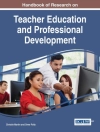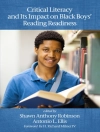The ideas and papers in this volume primarily showcase the work of a group of new scholars who will lead the next generation of educational practise and inquiry. While the topics explored are critical issues, the ways in which these new scholars have chosen to address them illustrates the diversity of voice, venue and value that has led them to present their work. Education and what it means has entered a new era in which the primary focus on education for the sake of education is strained. An educational free-for-all, in the sense of a no-holds-barred fight, seems in place as competition for market share, effective branding exercises and movement towards a client-based delivery of educational services (on demand as demanded) has been fuelled and compounded by litigation, accreditation, transfer credits and matters of patents, copyrights, ownership and monopoly. The link between education and financial well-being has been co-opted as the key to personal success. Unfortunately, the degree pursuit, often called the “paper chase” has become competitive for learners seeking scholarships, awards and entry into graduate school. This transition indicates movement from becoming well educated to employability potential paralleling much institutional retooling and sustenance of enhanced reputation and fiscal viability.
Inhaltsverzeichnis
Acknowledgements; Preface; Introduction; Section 1: Learners; 1. Social Epistemology, Higher Education and Cultural Convergence; 2. Teaching Qualification for Doctoral Students; 3. Developments in Doctoral Assessment in the UK; 4. Keeping the Boys at a Distance: An Alternate Path to Post-Secondary Education; 5. Preparing Researchers of Tomorrow: Research Assistantships as Learning Venues for Postgraduate Students; 6. Every Student Counts: Current Trends in Post-Secondary Student Retention; Section 2: Learning; 7. Outcomes of Learning: [Dis]engaging Students in Higher Education; 8. Quality Assurance Requirements in Ontario Universities: How did we get here?; 9. Students with Learning and Developmental Disabilities in Post Secondary Education: Towards an Inclusive Universal Design Model; 10. UK Higher Education: Providing Assurance of Academic Standards and Quality; 11. Matching the Characteristics of Researchers with the Demands of 21st Century Research; 12. Tensions Between Practitioner Researchers and University Human Research Ethics Regulatory Boards; Section 3: Governance; 13. Silence Within the Academy: A Symptom 165 Rahul Kumar; 14. Evaluating the Impact of Innovations in Doctoral Education in the UK; 15. Doctorateness – An Elusive Concept?; 16. Intersecting Roles: Tensions of Employee-Graduate Students; 17. John is back, or is he? The Dewey Revival and Community Service-Learning in Higher Education; 18. Quality and Sustainability Concerns for Online Course Offerings in Institutions of Higher Education; 19. Befriending Bologna? Students and Standardized Policies and Procedures Governing Higher Education in Europe; Author Biographies;












